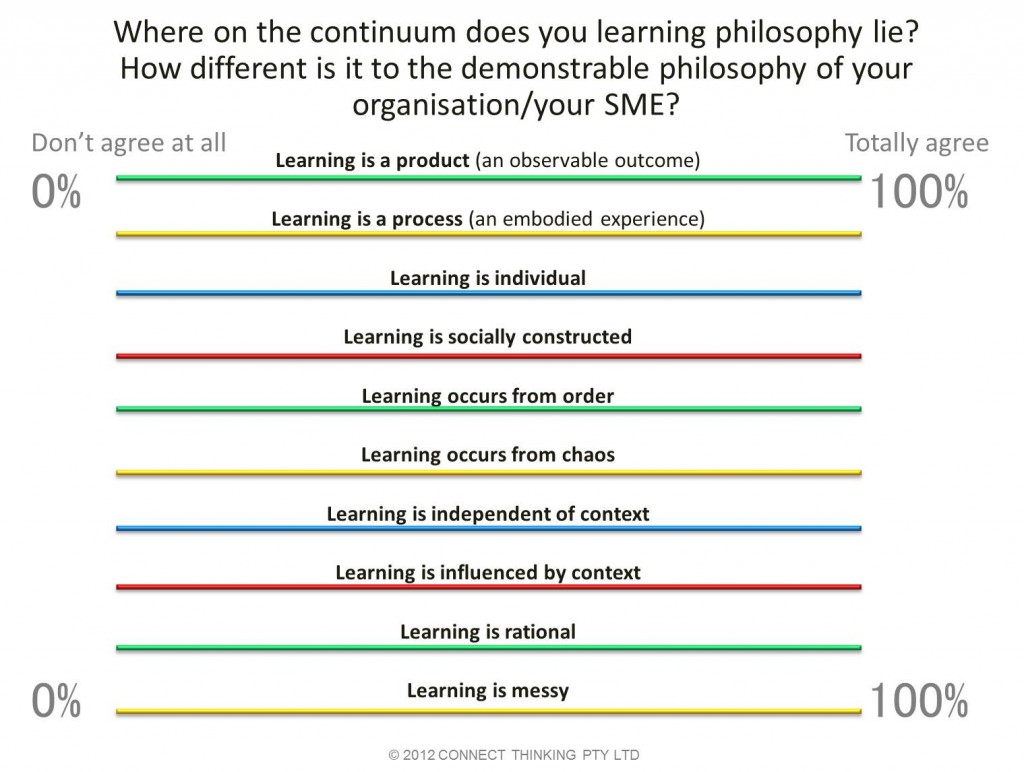Last Friday May 25 I had the privilege of presenting at the ElNet Workplace Congress in Sydney. I thought I’d share a synopsis of my activity-based presentation: Keeping Learning in Mind: Challenges in E-Learning Practice.
The intent of the session was to get the audience to think about the dissonance they may be working in when their view of learning differs from the organisation as a whole and from the subject matter experts (SMEs) they are working with. We asked ourselves how we define learning, when it is triggered, and what does it look like in your organisation.
I then provided a handout, similar to the one below, and asked participants to mark where on each continuum their learning ‘philosophy’ sits. They then marked where on the continuum their organisation sits. Finally, we then imagined our organisation’s Work Health and Safety SME came to us demanding an e-learning solution to be developed in 3 months to comply with new WHS legislation. The audience then marked on the continuum where that e-learning project would ‘operate’ from – based on business necessity, SME understanding of learning etc.
The intention of the activity was not to expose a problematic too large to fix. It was to highlight the value of developing a set of guiding principles or framework that can help the learning or e-learning practitioner negotiate the e-learning designs and strategy in their organisation. I have found a set of agreed learning design guiding principles can be shared with SMEs and can help underpin e-learning project design decisions. We ran out of time to share our ideas on what would be workable guiding principles. Below are some of mine for you to ponder:
Example learning design guiding principles:
At [Company], we:
- Foster a culture of learning through conversation and self-governance
- Support continuous learning through the availability of easily accessible materials in the workplace
- Support the democratisation of learning by making content available to all
- Support skill development through challenge, reflection and manager conversation
- Facilitate learning transfer through communication with managers
- Reward behaviours of sharing and collaboration
- Support skill development through immediate feedback
- Use technology to enhance and enable learning
- Implement learning holistically, and integrate it with workplace conversations
- Use blended learning to facilitating individual and social learning, learning transfer & continuous improvement
We do not:
-
Use technology at the detriment of good learning design
Why not use the learning philosophy continuum with your colleagues to discuss your similarities and differences and to begin a conversation about learning design guiding principles
I invite you to share the philosophy or principles your work by. Simply comment to this bog post. Thank you.

